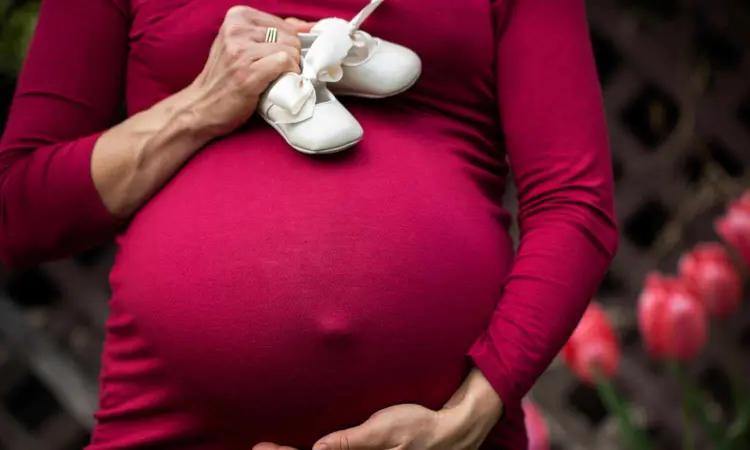- Home
- Medical news & Guidelines
- Anesthesiology
- Cardiology and CTVS
- Critical Care
- Dentistry
- Dermatology
- Diabetes and Endocrinology
- ENT
- Gastroenterology
- Medicine
- Nephrology
- Neurology
- Obstretics-Gynaecology
- Oncology
- Ophthalmology
- Orthopaedics
- Pediatrics-Neonatology
- Psychiatry
- Pulmonology
- Radiology
- Surgery
- Urology
- Laboratory Medicine
- Diet
- Nursing
- Paramedical
- Physiotherapy
- Health news
- Fact Check
- Bone Health Fact Check
- Brain Health Fact Check
- Cancer Related Fact Check
- Child Care Fact Check
- Dental and oral health fact check
- Diabetes and metabolic health fact check
- Diet and Nutrition Fact Check
- Eye and ENT Care Fact Check
- Fitness fact check
- Gut health fact check
- Heart health fact check
- Kidney health fact check
- Medical education fact check
- Men's health fact check
- Respiratory fact check
- Skin and hair care fact check
- Vaccine and Immunization fact check
- Women's health fact check
- AYUSH
- State News
- Andaman and Nicobar Islands
- Andhra Pradesh
- Arunachal Pradesh
- Assam
- Bihar
- Chandigarh
- Chattisgarh
- Dadra and Nagar Haveli
- Daman and Diu
- Delhi
- Goa
- Gujarat
- Haryana
- Himachal Pradesh
- Jammu & Kashmir
- Jharkhand
- Karnataka
- Kerala
- Ladakh
- Lakshadweep
- Madhya Pradesh
- Maharashtra
- Manipur
- Meghalaya
- Mizoram
- Nagaland
- Odisha
- Puducherry
- Punjab
- Rajasthan
- Sikkim
- Tamil Nadu
- Telangana
- Tripura
- Uttar Pradesh
- Uttrakhand
- West Bengal
- Medical Education
- Industry
Study suggests some maternal HIV infections may be missed during pregnancy

Newborns exposed to HIV during pregnancy or birth should receive preventive antiretroviral medication immediately after delivery to reduce the risk of transmission from mother to child.
But a study finds that more than half of infants diagnosed with HIV in their first year of life had not received this essential postnatal treatment — suggesting their mothers’ infections may not have been detected during pregnancy.
The study also highlights racial disparities in HIV exposure, infection and treatment: The majority of infants who had not been treated for an HIV infection after birth were Black, according to the findings in Pediatrics.
“Being born with HIV profoundly affects a child’s health and future, and we have effective tools to prevent it,” said senior author Kengo Inagaki, M.D., pediatric infectious disease specialist at University of Michigan Health C.S. Mott Children’s Hospital.
“When newborns aren’t getting preventive treatment, it suggests we may be missing HIV infections in pregnant women and missing critical opportunities to intervene.”
Missed prevention in high risk infants
Researchers analyzed Medicaid data for more than three million infants born between 2009 and 2021.
Among 52 infants diagnosed with HIV by age one, more than half had not received the recommended postnatal antiretroviral prophylaxis.
“Our findings point to potential gaps in prenatal HIV detection,” said Inagaki, who's also a researcher at the U-M Medical School and with the Institute for Healthcare Policy and Innovation.
“Universal HIV screening is recommended in the first trimester, but it's not consistently repeated later in pregnancy, when new infections can occur.”
Retesting during the third trimester, he adds, could help identify mothers who acquire HIV later in pregnancy — and prevent mother-to-child transmission through timely treatment.
Racial disparities consistent with national data
The study also reflects broader national trends in racial disparities related to HIV.
Nearly 74% of infants who were diagnosed with HIV but did not receive preventive medication were Black.
This reflects long-standing disparities in health care access, including HIV screening and maternal care, Inagaki says.
National surveillance data show that while women account for about 18% of new HIV infections in the United States, more than 60% of these are in women of childbearing age and over half of those are Black women.
Strengthening prevention for at-risk newborns
U.S. guidelines for preventing perinatal HIV transmission have evolved over the last three decades.
Today, nearly all infants born to mothers with known HIV infections receive postnatal antiretroviral prophylaxis, significantly reducing their risk of infection.
“Virtually all perinatal HIV infections in the U.S. are preventable,” Inagaki said.
“But that prevention starts with diagnosing maternal HIV early. If we miss the infection in the mother, we miss the chance to protect the baby. HIV is a lifelong condition requiring lifelong care. That’s why timely detection and treatment in both mothers and infants must remain a public health priority.”
Reference:
Mingyue Lu, Postnatal Antiretroviral Prophylaxis and Perinatal HIV Infection in Medicaid-Enrolled Infants, PEDIATRICS, https://doi.org/10.1542/peds.2025-070746
Dr Kamal Kant Kohli-MBBS, DTCD- a chest specialist with more than 30 years of practice and a flair for writing clinical articles, Dr Kamal Kant Kohli joined Medical Dialogues as a Chief Editor of Medical News. Besides writing articles, as an editor, he proofreads and verifies all the medical content published on Medical Dialogues including those coming from journals, studies,medical conferences,guidelines etc. Email: drkohli@medicaldialogues.in. Contact no. 011-43720751


